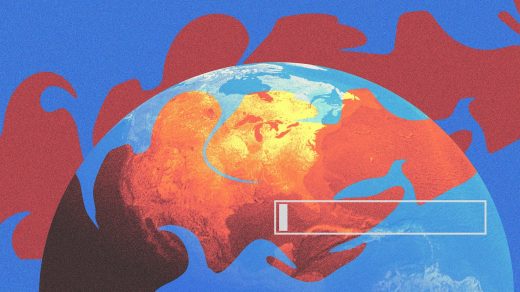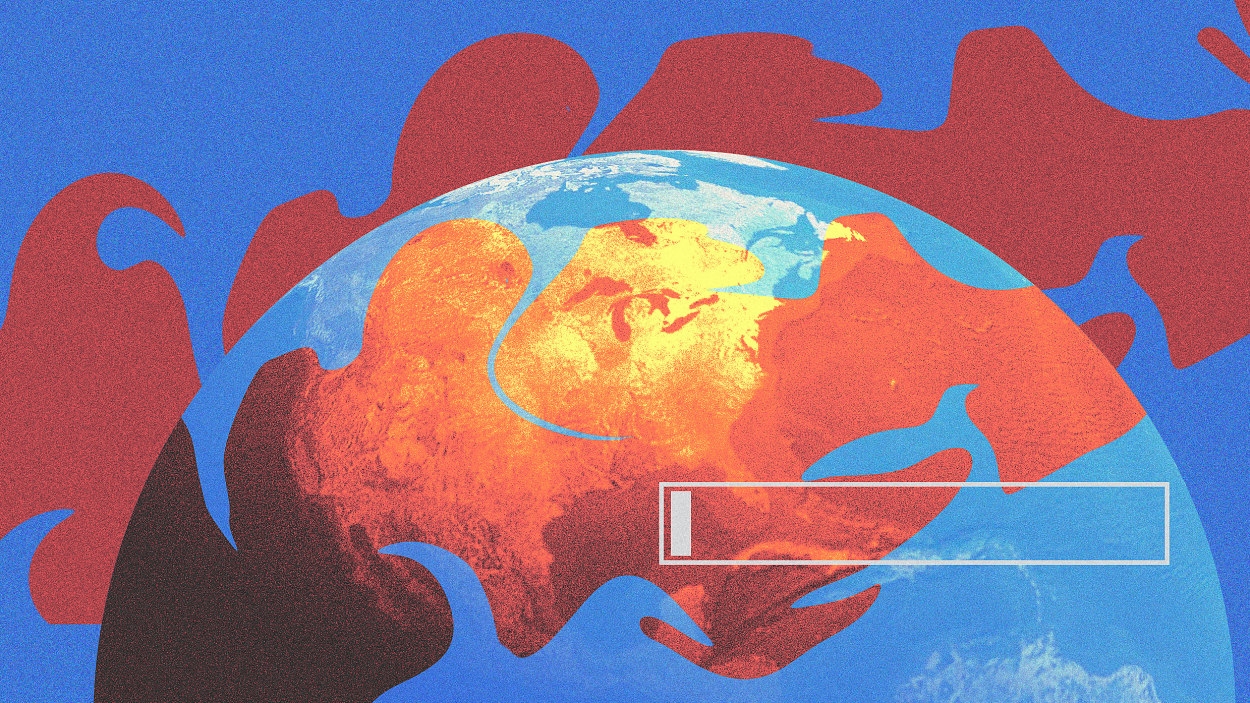Are these heat waves so hot they need names?
Zoe. Yago. Cerberus. Chevron. These distinct names have something in common: They’ve all been used to christen heat waves.
This practice has become more popular during this summer’s record global heat—but not all names are created equal. While some people have introduced labels informally, one particular organization is taking a painstaking and careful approach to determine if naming helps keep people safe during extreme heat. Its early data shows this may be effective—but not everyone agrees.
This week, with the backdrop of unprecedented heat around the world, the World Meteorological Organization (WMO), a UN agency specializing in international cooperation in atmospheric science, published a news release with resources for global governments on different heat-wave intensities and standard terminologies for extreme heat. Much of the release was dominated by its concerns about naming heat waves, including the worry that it misdirects focus and attention from helping people during these emergencies.
Kurt Shickman, director of extreme heat initiatives at the Adrienne Arsht Rockefeller Foundation Resilience Center, says the WMO’s doubts are welcome. “I think it’s very healthy,” he says. “These are exactly the right questions and concerns to have about the approach.”
Shickman has been central in the group’s formal naming of heat waves in Seville, in an official pilot program with the Spanish city. It’s part of a larger initiative to base emergency responses to extreme heat in local health outcomes, rather than simply in weather forecasts. In other words, meteorologically identical heat waves can have different effects on people’s health, based on where and when they hit, and other social, economic, and environmental contexts.
“You may have days that don’t quite rise to the level of a warning, but they’re actually quite dangerous,” Shickman says. “It doesn’t matter if it’s 35 degrees [Celsius]. It matters what that 35 degrees means for people in the places where we live.”
As part of this pilot, the group named heat waves as a messaging tool for the public, mainly via the city’s social media channels, to generate more awareness and action. They started last July, with Zoe, continuing this summer, with Yago and Xenia.
Before and after Zoe, they collected survey data to gauge if the naming shifted behaviors among people who lived in Seville. The data is promising. They found that people who remembered that the heat wave was called Zoe took better precautions, doing things like staying indoors, adjusting plans and working hours, and drinking more water.
They also checked in on others more and helped their fellow neighbors. They had stronger beliefs that heat waves were dangerous—and they had stronger beliefs that the local government was working to protect its citizens.
Still, it’s early data. “I don’t think what I’m describing here is the definitive answer for whether naming works,” Shickman says. Importantly, the data also showed that those who recalled the name were younger and wealthier on average, suggesting equitable messaging needs to be improved. But he says it’s key to keep doing this research on public engagement.
This will be crucial as Europe suffers. Last summer, at least 61,000 people died of heat in Europe’s hottest summer on record. And it’s happening again. Greece, Italy, and Spain have baked in 118-degree Fahrenheit temperatures; there have been wildfires in the Canary Islands, tourist attractions have closed, and there have been evacuations as far north as Switzerland. Similar heat waves have struck the U.S., Africa, and Asia.
During this crisis, other people in the meteorology field have informally started to name heat waves. This summer, the founder of a weather website in Italy named current heat waves after mythological figures like Caronte, and Cerberus, the multiheaded dog that guards the Underworld in Greek mythology. In the U.S., a former Weather Channel meteorologist names heat waves after fossil fuel companies, like BP and Chevron.
Shickman says he understands that these names can lead to confusion and skepticism, especially because they’re not based in responsible research. “This proliferation of names where the methodology is unclear, or where it is purely a marketing scheme,” he says, “could be problematic.”
WMO also decried naming heat waves because there’s no international standard for doing so, but Shickman says that’s exactly what his group is striving for. And the WMO would be a crucial partner. With such collaborations, they’d be able to refine technical details, such as the WMO’s concern that heat waves are less distinguishable from each other than other disasters like cyclones.
For Shickman, the research has to start somewhere, and his center’s work is providing that early fact base. “We need to be creative and innovative and open-minded about how we can address this challenge,” he says. “Because the system we’re working with right now is still resulting in a tremendous amount of deaths.”
(10)



